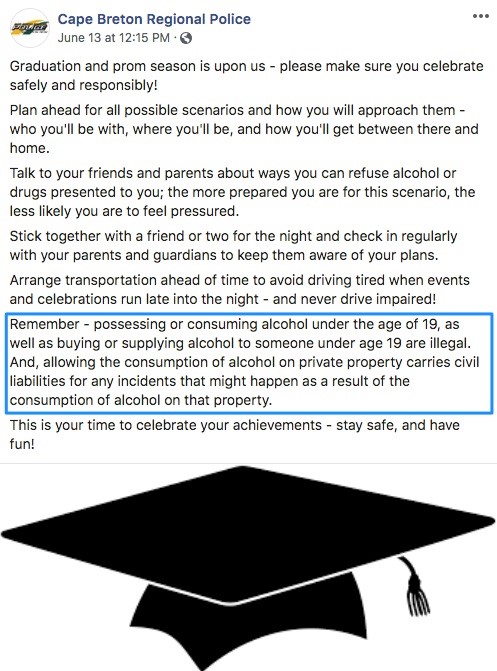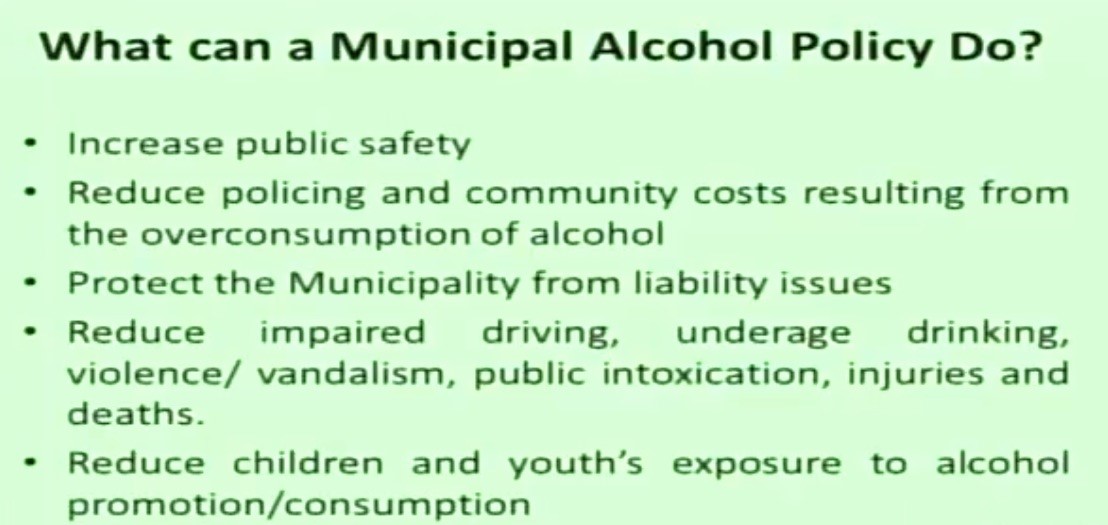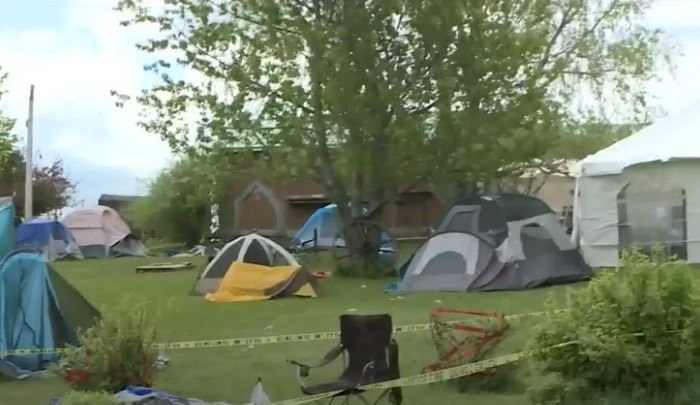Factors surrounding Joneil Hanna's death quickly turned into the perfect storm of conditions for conspiracy theories.
- One of the earliest news reports described a body being "found" and describing it as "suspicious" instead of an accident with a non-impaired driver (source).
- A voicemail sent from Hanna's phone recorded a message thought to be very near the time of his death (source), but calls for help came as long as 14 minutes later. A voice can be heard on the recording saying "You killed him!", amidst frantic suggestions of putting him in the trunk.
- Police sent the driver home without a breathalyzer, and then later the person who drove him home claimed that he was clearly intoxicated (source), as did other witnesses (source).
- A picture was circulated of the driver holding a beer at the party, and there were mentions of a Snapchat video that was never shared.
- In social media, there are claims that the driver's half-brother is the son of a police officer, leading to the implication that he might have been let off easy as a result.
- A young man who claims to have been walking with Joneil and witnessed the accident now alleges in the media that an officer at the scene insisted that Hannah had been "stabbed". He also says when he called the police to give another statement, it happened at an "abandoned school". (source)
It doesn't take a professional author to realize that this sounds like a brainstorming session for writing a fictional crime novel. There are endless permutations of how all of this stuff can be put together. And the theories range from the completely reasonable (an accident with imperfect decisions made during a period of emotional shock) to what I consider completely absurd (a staged, premeditated murder). Such is the nature of the conspiracy-minded.
While theories that suggest some form of fault by the police may seem irrational to those who respect and appreciate our first responders, people who raise them as possibilities can demonstrate that incorrect procedure, misconduct, or even obstruction of justice are, in fact, possible, sometimes. As an example of obstruction of justice, a case in 2014 involved a Cape Breton Regional Police officer sentenced to 3 months as a result of charges that resulted after he "asked the jailer to warn the alleged drunk driver by phone that police were on their way to his house", falsified reports, and lied to higher ranking officers. Here's the CBC report.
This does not, by any means, indicate any issues with how police handled the Joneil Hanna situation. It does, however, demonstrate that those who have suspicions that there was, do have a factual basis in asserting that some police officers are at least capable of making mistakes or even breaking the law.
In a CTV interview, legal expert Wayne Mackay was described as being surprised there was no breathalyzer. Therefore, even the discussion of why the breathalyzer wasn't administered on the driver raises questions for those with expertise in the field:
"He admits in this case, without knowing all of the evidence, it's surprising there wasn't enough reason to give the test." (Source)
The majority of the information comes directly from our professional local journalists. Journalists enjoy greater acceptance and authority with what they report, even when sloppily done. But social media has a well-earned reputation for contorting information. For all the great things it does for communication, it certainly brings with it an ugly side too. Despite this, given all of the above factors, it would be tough to blame the conspiracies that have arisen based on Facebook discussion alone. The people commenting certainly have enough seed material to create conspiracies of everything from police cover-ups to suggestions that the death may not have been an accident at all if they are so inclined. Whether right or wrong, it's easy to come up with such narratives and make them sound plausible.
When these ideas take root, they are difficult to irradicate. And it's likely that the events surrounding Joneil Hanna's death will be resolved in some legal manner long before any true sense of resolution happens for his family, friends, peers, or anyone involved.
Whether police followed correct procedure in not administering a breathalyzer test or not, one thing is absolutely clear: There will never be an opportunity to determine the level of alcohol or drugs present (or non-present) in the driver's system immediately following the collision that killed Hanna. There are no do-overs possible.
Despite this inability to determine the driver's ability to drive safely that night, it does not completely eliminate an argument regarding liability for the CBRM. The liability challenge may be focused on the suggestion that the police permitted a party where underaged teens were consuming alcohol without intervening. It isn't only the driver who could present a liability challenge if alcohol was involved.
Some people have suggested that Hanna may have been intoxicated enough so that he put himself in danger walking on the road. At just 17 years of age, Hanna was not allowed to legally drink alcohol in Nova Scotia. If he was intoxicated, and that intoxication occurred at a party that CBRM police were aware of, present at or near, but did not intervene in, that could also lead to legal arguments suggesting the police and the CBRM also have liability in the death. Just two days after Hanna's death, the police posted a reminder via their own Facebook page about liability:
"Remember - possessing or consuming alcohol under the age of 19, as well as buying or supplying alcohol to someone under age 19 are illegal. And, allowing the consumption of alcohol on private property carries civil liabilities for any incidents that might happen as a result of the consumption of alcohol on that property."

The question of liability has been raised in discussions about the homeowner. But there could be some potential liability for the police or the CBRM as well.
On December 10th, 2015 Councillor Eldon MacDonald asked Chief Peter MacIsaac about the question of liability, if the families could sue after an alcohol-related death. He was referring to an issue with drinking at C200. Chief MacIsaac deferred to the CBRM solicitor, but not before giving his input:
"Myself personally, if we know that behaviour is happening there, and we're condoning it, and not doing anything about, I think we're on the hook..." - Chief Peter MacIsaac, Cape Breton Regional Police
The solicitor was invited to speak on the matter and quickly agreed that there was "possible liability" and "definitely concerns".
In a response to another question, the Chief emphasized that when the police are called, enforcing the Liquor Control Act is a part of their job. See the video below. On the night of Hanna's death, police say there were called to the party twice that night.
"Police say they were called twice to a residence on the highway, at 1 a.m. and 3 a.m., about a large number of people with the potential for fights and impaired driving."(Source)
Despite police indicating there were up to "20 officers" "monitoring" the party (source), it was not shut down. Another article quoted Staff Srg. Bill Turner suggesting that police did not intervene on the party due to concerns about their own safety:
“The officers in their reports indicated the area was fairly dark, so they were not, for officer safety reasons, entering on to the property”(Source)
There are reasons for our laws including the Liquor Control Act. At the Dec 10th, 2015 presentation to council, they outlined the goals of a municipal alcohol policy:

Reducing injuries and death is a part of that policy. Had this party not happened at this location, there is a very good chance that Joneil Hanna would still be alive. If our officers are called but do not break up the party and thereby stop underage drinking from being permitted, it sends a message to teens that this is permissible behaviour in the CBRM.
Councillor Clarence Prince touched on this idea when he talked about local parents who condone underage drinking by their children. Whether is it the parents or our authorities that allow teens to use or abuse alcohol before they are of legal age to do so, it sends a strong message to them.
Why should they be concerned about making this choice when they can get away with it?
If we take the Chief of Police and the solicitor's comments in 2015 as any indication, it's clear that there is at least a question of potential liability as it relates to the police and the CBRM.
NOTE: The views expressed above are my own and do not represent lokol (goCapeBreton.com). Read more






0
Log In or Sign Up to add a comment.- 1
arrow-eseek-eNo items to displayFacebook Comments